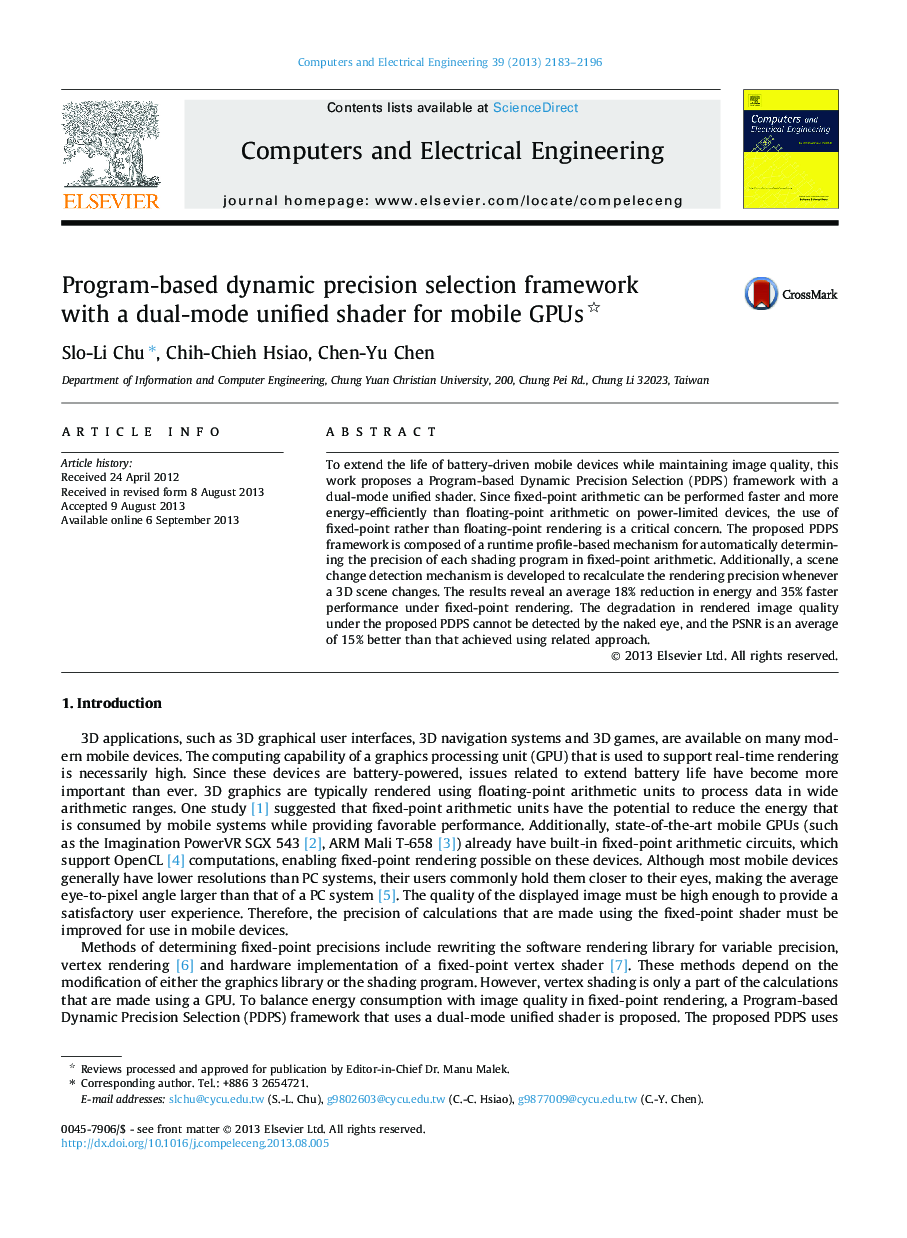| Article ID | Journal | Published Year | Pages | File Type |
|---|---|---|---|---|
| 455681 | Computers & Electrical Engineering | 2013 | 14 Pages |
•Design a program-based dynamic precision selection mechanism for both vertex and fragment shading.•Propose a dual-mode unified shader management scheme with program-based precision adjustments.•Real 3D games are adopted to compare fixed-point, floating-point, and PDPS unified shaders.•The image quality of PDPS mechanism is better than conventional fixed-point unified shaders.•The performance and energy consumption of PDPS are better than floating-point unified shader.
To extend the life of battery-driven mobile devices while maintaining image quality, this work proposes a Program-based Dynamic Precision Selection (PDPS) framework with a dual-mode unified shader. Since fixed-point arithmetic can be performed faster and more energy-efficiently than floating-point arithmetic on power-limited devices, the use of fixed-point rather than floating-point rendering is a critical concern. The proposed PDPS framework is composed of a runtime profile-based mechanism for automatically determining the precision of each shading program in fixed-point arithmetic. Additionally, a scene change detection mechanism is developed to recalculate the rendering precision whenever a 3D scene changes. The results reveal an average 18% reduction in energy and 35% faster performance under fixed-point rendering. The degradation in rendered image quality under the proposed PDPS cannot be detected by the naked eye, and the PSNR is an average of 15% better than that achieved using related approach.
Graphical abstractFigure optionsDownload full-size imageDownload as PowerPoint slide
